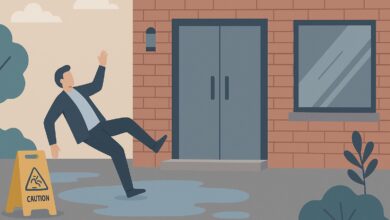South Carolina Property Taxes and Legal Loopholes You Should Know
In this comprehensive guide, we’ll explore everything you need to know about South Carolina property taxes, including how they work

When it comes to owning property in South Carolina, understanding the intricacies of South Carolina property taxes is crucial. Property taxes can significantly impact your financial planning, whether you’re a homeowner, investor, or business owner. However, what many people don’t realize is that there are legal loopholes and strategies that can help you reduce your tax burden. In this comprehensive guide, we’ll explore everything you need to know about South Carolina property taxes, including how they work, how they’re calculated, and the legal loopholes you can leverage to save money.
Understanding South Carolina Property Taxes
What Are Property Taxes?
Property taxes are levies imposed by local governments on real estate properties, including land, homes, and commercial buildings. These taxes are a primary source of revenue for funding public services such as schools, roads, emergency services, and infrastructure. In South Carolina, property taxes are administered at the county level, meaning rates and regulations can vary depending on where your property is located.
How Are South Carolina Property Taxes Calculated?
The calculation of South Carolina property taxes involves three key components:
- Assessed Value: This is the value of your property as determined by the county assessor. In South Carolina, residential properties are assessed at 4% of their market value, while commercial properties are assessed at 6%.
- Millage Rate: The millage rate is the tax rate applied to the assessed value. One mill equals 1 of tax per 1,000 of assessed value. Millage rates vary by county and are set by local governments.
- Exemptions and Deductions: South Carolina offers several exemptions and deductions that can lower your taxable value, such as the Homestead Exemption for primary residences.
For example, if your home has a market value of 300,000, the assessed value would be 300,000, and the assessed value would be 12,000 (4% of 300,000). If your county’s millage rate is 100 mills, your annual property tax would be 300,000). ($12,000 x 0.100).
Key Factors Affecting South Carolina Property Taxes
1. Location Matters
Property tax rates in South Carolina vary widely by county. For instance, urban areas like Charleston or Greenville may have higher rates compared to rural counties. Researching the millage rates in your area can help you estimate your tax liability more accurately.
2. Property Type and Use
The type of property you own also affects your tax rate. Residential properties are taxed at a lower rate than commercial or industrial properties. Additionally, properties used for agricultural purposes may qualify for special tax assessments, reducing their taxable value.
3. Reassessment Cycles
South Carolina counties reassess property values every five years. If your property’s market value increases significantly during this period, your assessed value and property taxes could rise. Staying informed about reassessment cycles can help you plan for potential increases.
Legal Loopholes to Reduce South Carolina Property Taxes
While property taxes are unavoidable, there are several legal strategies and loopholes you can use to minimize your tax burden. Here are some of the most effective ones:
1. Homestead Exemption
The Homestead Exemption is one of the most valuable tax breaks for South Carolina homeowners. If you’re 65 or older, totally disabled, or legally blind, you may qualify for this exemption, which can reduce the taxable value of your primary residence by up to $50,000. To apply, you’ll need to submit an application to your county assessor’s office.
2. Agricultural Use Assessment
If you own farmland or timberland, you may qualify for an agricultural use assessment. This special assessment values your property based on its agricultural income potential rather than its market value, significantly reducing your tax liability. To qualify, you’ll need to demonstrate that your property is actively used for agricultural purposes.
3. Appeal Your Property Assessment
If you believe your property has been overvalued by the county assessor, you have the right to appeal the assessment. Gather evidence such as recent sales of comparable properties or a professional appraisal to support your case. Successfully lowering your assessed value can lead to substantial tax savings.
4. Tax Payment Discounts
Some South Carolina counties offer discounts for early property tax payments. For example, paying your taxes in full by a specified deadline could earn you a 2-3% discount. While this isn’t a direct reduction in your tax rate, it’s a simple way to save money.
5. Installment Payment Plans
If you’re struggling to pay your property taxes in one lump sum, some counties offer installment payment plans. This option allows you to spread your tax payments over several months, making it easier to manage your finances.
6. Senior Citizen and Disability Exemptions
In addition to the Homestead Exemption, South Carolina offers additional tax relief for senior citizens and disabled individuals. These exemptions can further reduce your taxable value, providing much-needed financial relief.
7. Property Tax Cap
South Carolina has a property tax cap that limits annual increases in the assessed value of primary residences to 15%. This cap protects homeowners from sudden spikes in property taxes due to rapid market value increases.
Tips for Managing South Carolina Property Taxes
1. Stay Informed About Tax Laws
Property tax laws and exemptions can change, so it’s essential to stay updated. Regularly check your county assessor’s website or consult with a tax professional to ensure you’re taking advantage of all available benefits.
2. Keep Track of Reassessment Notices
When your property is reassessed, you’ll receive a notice from the county assessor. Review this notice carefully and compare it to your property’s market value. If you spot discrepancies, don’t hesitate to file an appeal.
3. Work with a Tax Professional
Navigating South Carolina property taxes can be complex, especially if you own multiple properties or have unique circumstances. A tax professional can help you identify additional deductions, exemptions, and strategies to minimize your tax liability.
4. Plan for Future Tax Increases
If you’re purchasing a new property, consider potential future tax increases. Research the area’s tax history and projected growth to estimate how your tax burden might change over time.
Common Misconceptions About South Carolina Property Taxes
1. “Renters Don’t Pay Property Taxes”
While renters don’t directly pay property taxes, these costs are often factored into their rent. Landlords typically pass on their tax expenses to tenants through higher rental rates.
2. “Property Taxes Are the Same Across the State”
As mentioned earlier, property tax rates vary by county. Even within the same county, rates can differ based on local school districts or special tax districts.
3. “Appealing an Assessment Is Too Complicated”
Filing an appeal may seem daunting, but it’s a straightforward process. Many homeowners successfully lower their assessments by providing accurate and compelling evidence.
Conclusion
Understanding South Carolina property taxes is essential for anyone who owns or plans to own property in the state. By familiarizing yourself with how these taxes are calculated and taking advantage of legal loopholes and exemptions, you can significantly reduce your tax burden. Whether you’re a first-time homeowner, a retiree, or a real estate investor, these strategies can help you save money and make smarter financial decisions.
Remember, staying informed and proactive is the key to managing your property taxes effectively. Don’t hesitate to seek professional advice if you’re unsure about any aspect of your tax obligations. With the right knowledge and planning, you can navigate the complexities of South Carolina property taxes with confidence.
By incorporating these tips and strategies, you’ll not only save money but also gain peace of mind knowing that you’re making the most of your property investment in South Carolina.











